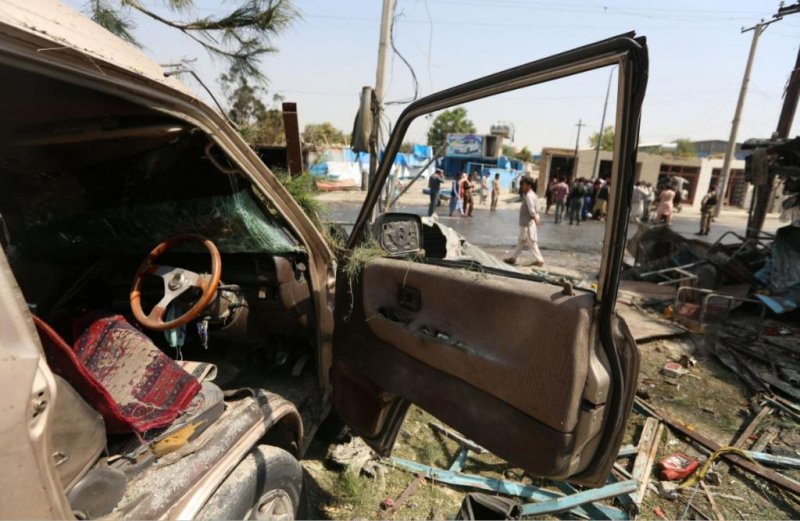The car carrying Afghan Vice President Amrullah Saleh was destroyed in a bomb blast on Wednesday in Kabul that killed at least 10 people. Saleh survived with minor burns. Photo by Jawad Jalali/EPA-EFE
Sept. 9 (UPI) -- A bomb in Kabul killed at least 10 people on Wednesday but its target, Afghan Vice President Amrullah Saleh, survived with minimal injuries.
It was the second assassination attempt against Saleh, a staunch opponent of the Taliban, this year.
Although the Taliban denied responsibility, the Afghan Interior Ministry said the explosives were identical to those used in previous attacks by the Taliban-affiliated Haqqani group.
Saleh, formerly Afghanistan's intelligence chief, sustained burns to his hands and face in the attack on his convoy as it traveled through Kabul, and later said that the blast was so powerful that the windows melted in the car in which he was a passenger.
He added that his son Ebadullah, who was in the vehicle with him, sustained burns. A number of security guards were among at least 15 people injured.
The incident occurred early Wednesday when explosives hidden in a cart by the side of the road detonated as Saleh's convoy passed. The blast destroyed several businesses and homes, and left a large crater in the street.
In July 2019, after Saleh announced his candidacy for vice presidency, he survived an attack in which a car bomb exploded before suicide bombers fought their way to his fourth-floor office in Kabul.
That attack killed 20 of his closest aides, including several family members. Saleh escaped by climbing a ladder to the roof of an adjoining building.
Wednesday's attack came as the first official talks between Afghan officials and the Taliban are under preparation in Doha, Qatar.
The talks are part of a peace deal signed by the United States and Taliban in February, in which the Afghan government did not participate. The agreement called in part for a withdrawal of U.S. troops from Afghanistan with the understanding that the Taliban would halt bombings in urban centers.
Attacks have continued, without Taliban acknowledgement of responsibility.
The talks have been postponed since February because of disagreement over a prisoner swap, now nearly complete, involving 5,000 Taliban prisoners and 1,000 members of Afghan security forces.















